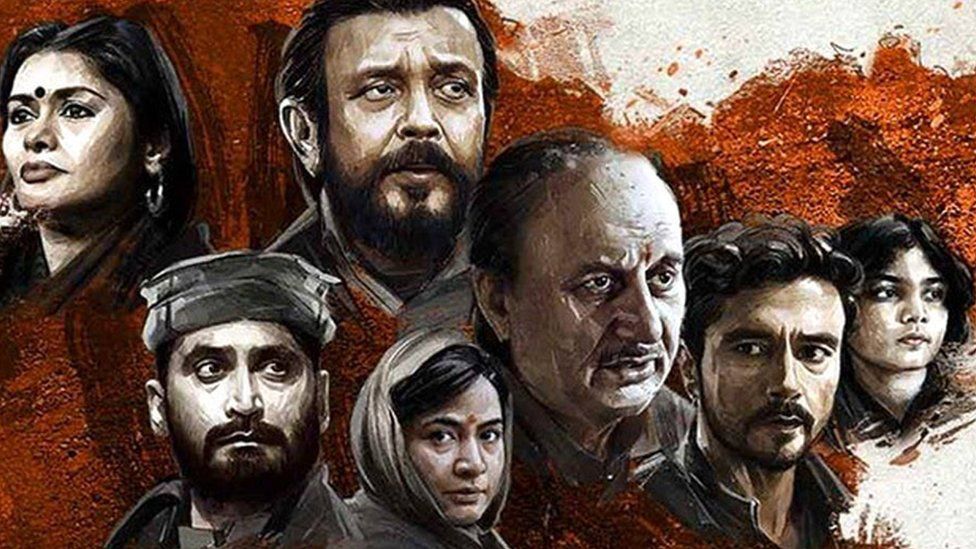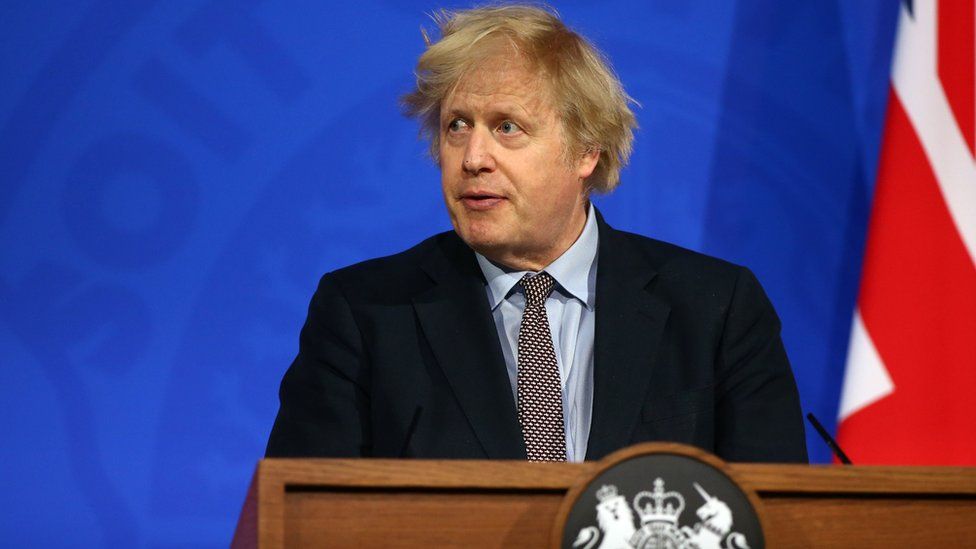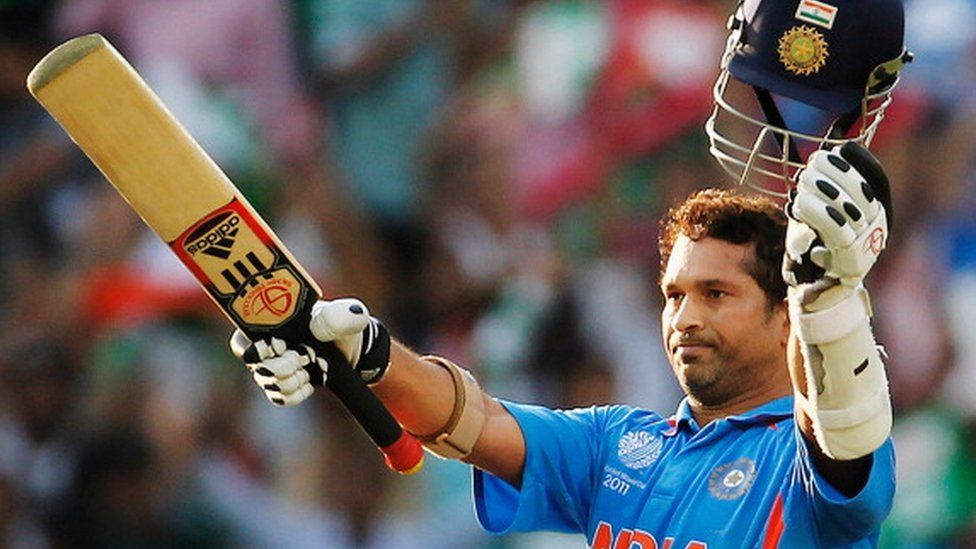A film on Kashmir exposes India's new fault lines

By Meryl Sebastian, Delhi, March 15: A new film on the exodus of Hindus from Kashmir in the 1990s has kicked up a storm in India, with even the governing Bharatiya Janata Party (BJP) weighing in on its behalf.
The Kashmir Files, released on Friday, tells the fictional story of a university student who discovers his Kashmiri Hindu parents were killed by Islamist militants - and not in an accident as his grandfather told him.
It received middling reviews from mainstream critics - more than one called it "exploitative" - but the film soon set off a heated debate on social media. Supporters said it shines a light on a neglected, bloody part of Kashmir's history but critics say it's careless with facts and Islamophobic.
Meanwhile, key ministers in Prime Minister Narendra Modi's BJP government have praised the film, several BJP-ruled states have waived tax on it, and police in Madhya Pradesh state have been offered a day of leave to watch the film.
So why has a small-budget film with no big stars polarised opinions this much?
Kashmir is a controversial subject
The movie delves into the history of Kashmir, and the restive region along India's border with Pakistan has long been a sensitive subject.
Its Muslim-majority valley has seen an armed insurgency against Indian rule since the late 1980s. Islamist militants began targeting Kashmiri Hindus - upper-caste Pandits - who were a minority group, in the 1990s. Many were killed and, by some estimates, hundreds of thousands of them fled their homes. Most never returned.
India's federal government deployed the army and gave it sweeping powers to arrest and interrogate - and over the years, security forces have been accused of excesses against locals. They deny the allegations but the region has since regularly seen huge and often furious protests against Delhi that have ended with civilian casualties. The tense relationship only grew worse after Modi's government revoked Kashmir's constitutionally guaranteed autonomy in 2019.
The nationalist party has also used the conflicted region as a poll plank - it has especially focused on the issue of the Hindu exodus, alleging that the Congress party, which was then in power, had neglected the Pandits' plight. The community, however, has said that no party has done much to rehabilitate them.
While Kashmir's tortured past has inspired numerous books and films, few have solely focused on the exodus and what led to it, according to journalist and author Rahul Pandita.
He says The Kashmir Files has elicited such a strong reaction because the Pandits have always felt that their story had been stifled. "They're experiencing, if I may call it that, an emotional catharsis," he adds.
Pandita, whose book, Our Moon Has Blood Clots: A Memoir of a Lost Home, is based on his experience of fleeing Srinagar as a teenager, said he continues to be surprised by how little people across the country know of this chapter of Kashmir's history.
"My book is into the 10th year of its publication, and I still receive at least three-four emails every single day from people from all corners of India, or some from outside of India, saying we had no idea about the quantum of this tragedy," he explained.
But others say that it is not surprising since there are many chapters in modern India's history - such as violence against lower castes, or allegations against India's security forces in the northeast or states that have seen Maoist insurgencies - that have not been told.
"I'm a little baffled by this constant refrain that this is a story that has not been told. It's not been told by Bollywood but Bollywood doesn't tell these stories," says Sanjay Kak, a Kashmiri Pandit himself and a documentary filmmaker who has covered the region extensively.
"When was the last time Bollywood told us the story of the 1984 riots in Delhi or the story of the Gujarat [riots] in 2002? There are thousands of stories in this country that don't get attention in the mainstream."
But the controversy is stemming not so much from the history of the exodus - as no one is refuting that it happened - but from the manner in which the story has been told, and who told it.
Polarisation and politics
The movie has certainly touched a chord among Kashmiri Pandits, but reviewers have panned the film for lacking nuance, given the complex history. Some have still praised the performances, while others have said that doesn't make up for its vilification of Muslims.
Viewers were divided too - some were touched and hoped this would help heal the wounds, while others were troubled by the stereotyped portrayal of Kashmiri Muslims, and the message the movie sends.
Some have also warned against dismissing the movie altogether: "You can't resolve any differences when you won't even acknowledge the pain of those who suffered."
But the loudest endorsements appear to be from BJP ministers - Women and Child Development minister Smriti Irani tweeted, urging people to watch the film, "so that this history soaked in the blood of innocents may never repeat itself".
The filmmakers also met Modi over the weekend, and some of the Bollywood stars who have tweeted in its favour - Akshay Kumar and Kangana Ranaut - are seen as being supportive of the government.
Asked whether the film could only be made under a BJP government, its lead actor Anupam Kher reportedly said: "That's true… Every film has its time."
The film's director, Vivek Agnihotri, who is also seen as a BJP supporter, has been accused of inaccuracies in his work. Last week, a court restrained him from including scenes depicting an air force squadron leader and his death after the man's wife filed a suit saying the details were factually incorrect and demeaned him.
Agnihotri's previous film - The Tashkent Files - which alleged a conspiracy in the death of former prime minister Lal Bahadur Shastri - was also criticised for presenting rumours as facts. Shastri's grandson sent Mr Agnihotri a legal notice, saying the film was trying to "create unwarranted and unnecessary controversy".
Agnihotri has defended The Kashmir Files, saying: "It's not about Hindu or Muslim like people would want to believe."
But by Monday night, Mohammed Zubair, co-founder of the fact-checking platform Alt News, had shared several videos from screenings of the film that showed audiences chanting anti- Muslims slogans.
Its reception is also in stark contrast to a 2020 film, Shikara, co-written by Mr Pandita, which delves into the same history. The Hindu right-wing had lashed out at the makers then, calling them "traitors" for allegedly whitewashing history.
"I think people wanted to see it in a more stark form, shorn of all sensitivity. We did not do that," Pandita said.
"What this film does do is to tell the story exactly as the right-wing wants," Kak says. "Shikara did not meet that qualification so it came under attack. This one seems to have the entire right-wing ecosystem coming out to push it into the world."
Pandita says given the complexity of the issue, there is space "for all kinds of films," but Kak is not so sure. "There is an insistence that this is "the truth". But you can't tell the story of Kashmiri Pandits without also telling the story of Kashmir in these 30 years. And maybe that's why people have not told the story in Bollywood before. Because there's no space to tell the story with the complexity that it deserves."
Recent News

Do not make expressions casting dout on election: EC
14 Apr, 2022
CM Bhatta says may New Year 2079 BS inspire positive thinking
14 Apr, 2022
Three new cases, 44 recoveries in 24 hours
14 Apr, 2022
689 climbers of 84 teams so far acquire permits for climbing various peaks this spring season
14 Apr, 2022
How the rising cost of living crisis is impacting Nepal
14 Apr, 2022
US military confirms an interstellar meteor collided with Earth
14 Apr, 2022
Valneva Covid vaccine approved for use in UK
14 Apr, 2022
Chair Prachanda highlights need of unity among Maoist, Communist forces
14 Apr, 2022
Ranbir Kapoor and Alia Bhatt: Bollywood toasts star couple on wedding
14 Apr, 2022
President Bhandari confers decorations (Photo Feature)
14 Apr, 2022








